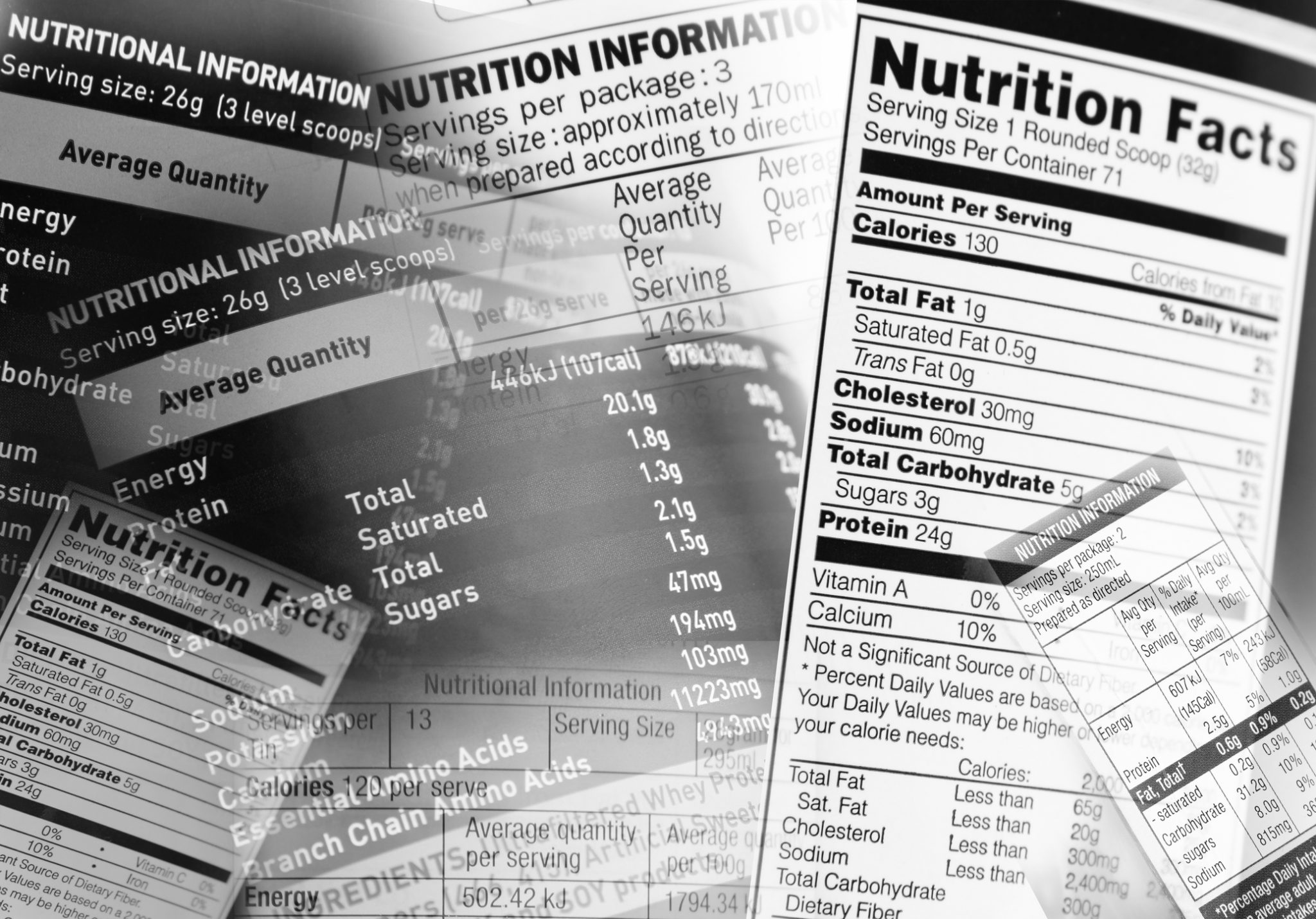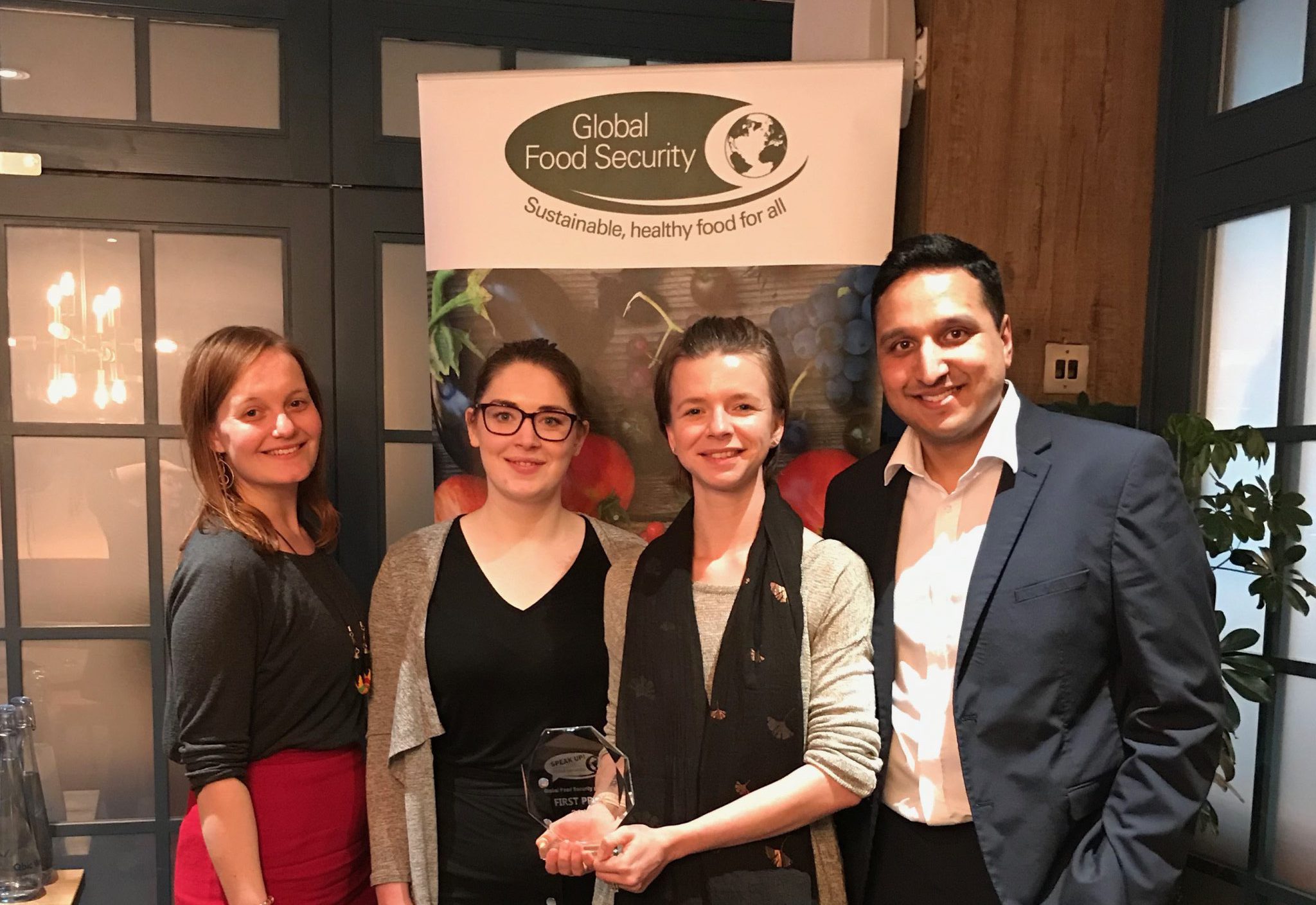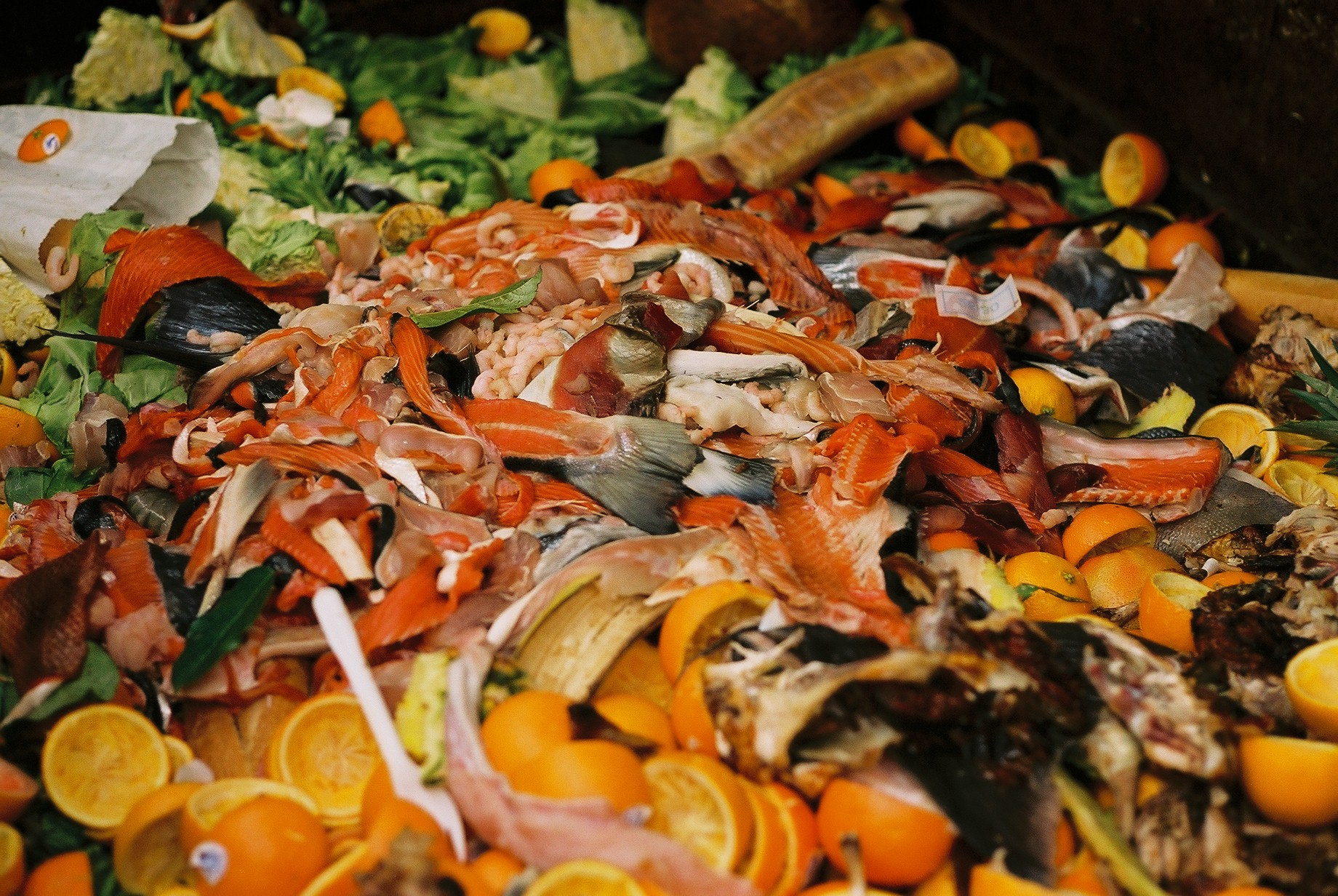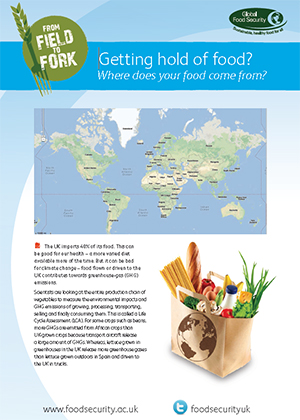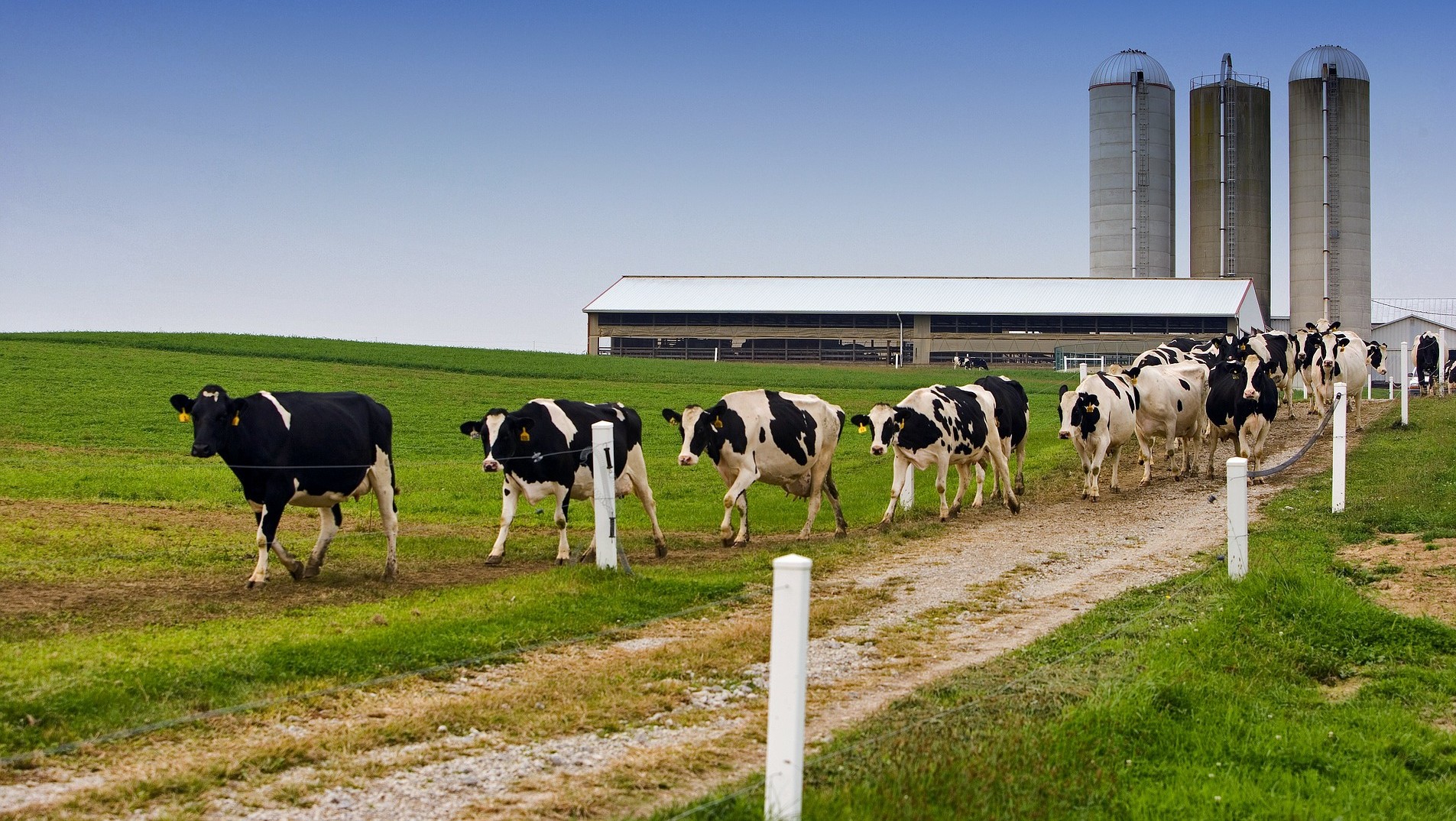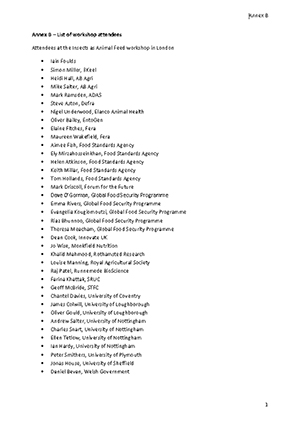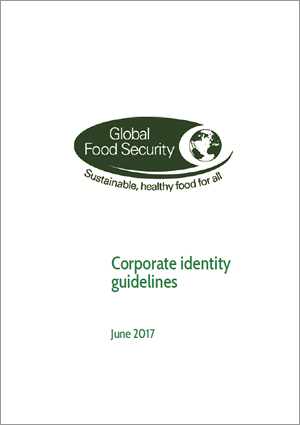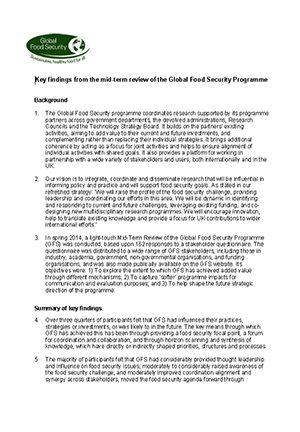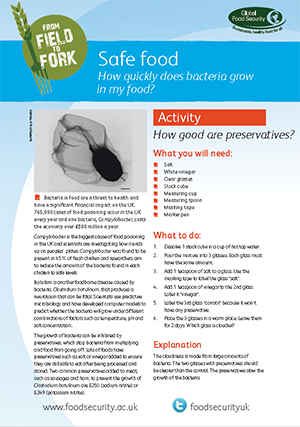
From Field to Fork: Safe food
This educational resource outlines food security activities you can try out at home. Different methods of preserving food can prevent bacterial growth and keep food safe to eat for longer. Carry out your own experiment with food preservatives to find out which ones work the best.
(You can view PDF documents by downloading a PDF reader. We recommend using Google Chrome or Mozilla Firefox web browsers.)



